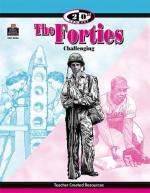|
This section contains 1,350 words (approx. 5 pages at 300 words per page) |

|
Often criticized and sometimes grudgingly admired, Franklin Roosevelt's innovative use of radio was a persistent thorn in the side of his political opponents. This was never more the case than at the Democratic National Convention in Chicago in 1940. Roosevelt's strategy for running for an unprecedented third term as president was to appear reluctant, suggesting that it was grassroots support, rather than ambition, which led him to the hustings. FDR did enjoy considerable support among the delegates, much of it, however, halfhearted — and that made for a moribund convention. Listeners, however, heard the convention enthusiastically draft Roosevelt. Mayor Kelly of Chicago, a partisan of FDR, packed loyal supporters into the basement of the convention hall. Their cheers at the mention of Roosevelt's name, picked up by strategically placed microphones, were broadcast over loudspeakers and over the radio — generating a sense that the...
|
This section contains 1,350 words (approx. 5 pages at 300 words per page) |

|




